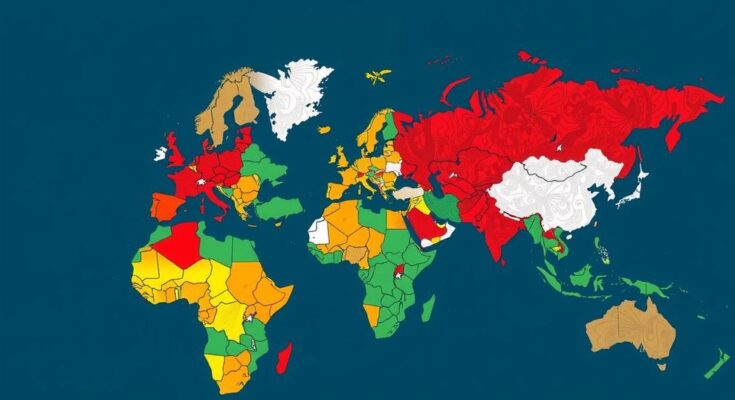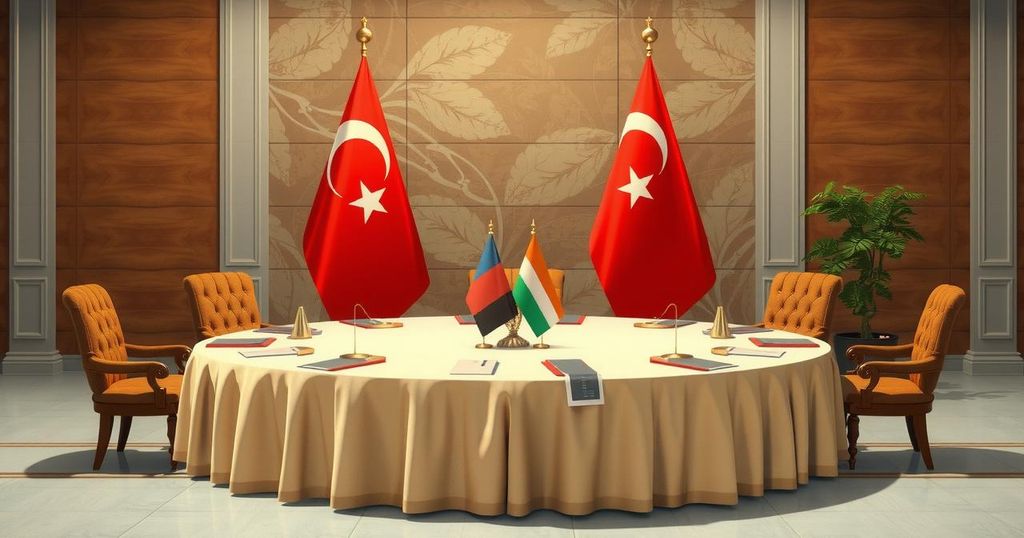At COP29, rich nations were criticized for prioritizing military expenditures over climate change mitigation efforts. Experts argued that the disproportionate investment in military allocations hinders essential funding for climate initiatives, highlighting a critical global policy challenge. Recent scientific findings indicate that climate change has substantially increased hurricane strength, necessitating urgent action by developed nations.
At the COP29 conference in Azerbaijan, rich countries faced significant criticism for prioritizing military spending over climate change mitigation. The Panamanian climate envoy Juan Carlos Monterrey Gómez highlighted the alarming global military expenditure of $2.5 trillion annually, contrasting it with the inadequate $1 trillion allocated for climate action. He remarked on the absurdity of humanity contributing to its own extinction, stating, “For some, 2.5 trillion dollars to kill each other, it’s not enough, but $1 trillion to save lives is unreasonable.”
Additionally, Nisreen Tamimi, Chairwoman of the Palestinian Environment Quality Authority, condemned Israel’s actions in Gaza as ecocide, asserting that environmental protection is a fundamental human right essential to all. Ukrainian Deputy Environment Minister Svitlana Grynchuk also raised concerns about the ecological damage caused by military activities, emphasizing that “Nature knows no borders.”
In a related context, United Nations Secretary-General António Guterres addressed the leaders of the Group of 20, urging them to increase financial support for developing nations. Brazilian President Luiz Inácio Lula da Silva suggested advanced deadlines for emission reduction targets, holding that the G20, responsible for a substantial portion of greenhouse gas emissions, must take more immediate action.
Furthermore, a recent scientific study revealed that climate change has intensified Atlantic hurricanes, with storms becoming approximately 18 mph stronger in the past six years. The findings suggested that, due to warmer ocean temperatures, hurricane strength has increased by two categories for some storms. Daniel Gifford, a climate scientist at Climate Central, stated, “The intensity of these storms is causing a lot more catastrophic damage in general.”
As climate-related disasters escalate, it is evident that the lack of robust funding for climate initiatives amidst military expenditures poses a grave threat to global efforts aimed at sustainability and ecological preservation.
The ongoing discussions surrounding climate change and global military spending are critical, especially in the context of COP29, an annual conference organized by the United Nations. With increasing natural disasters linked to climate change, the urgency for nations to allocate resources toward prevention is vital. The juxtaposition of military spending against what is required for climate initiatives highlights a significant policy dilemma faced by affluent nations. The recent scientific evidence on hurricane intensification underscores the importance of immediate action to combat climate change while balancing international security concerns.
The critique of affluent nations at COP29 regarding their military spending amidst escalating climate emergencies reveals a crucial discourse on prioritizing resource allocation. It is imperative that global leaders reassess their funding strategies to favor climate change mitigation efforts over military expenditures. As evidenced by recent studies, the increasing strength of hurricanes linked to climate change reflects the urgent need for meaningful action, particularly from the world’s most developed countries, to avert catastrophic ecological damage.
Original Source: www.peoplesworld.org




